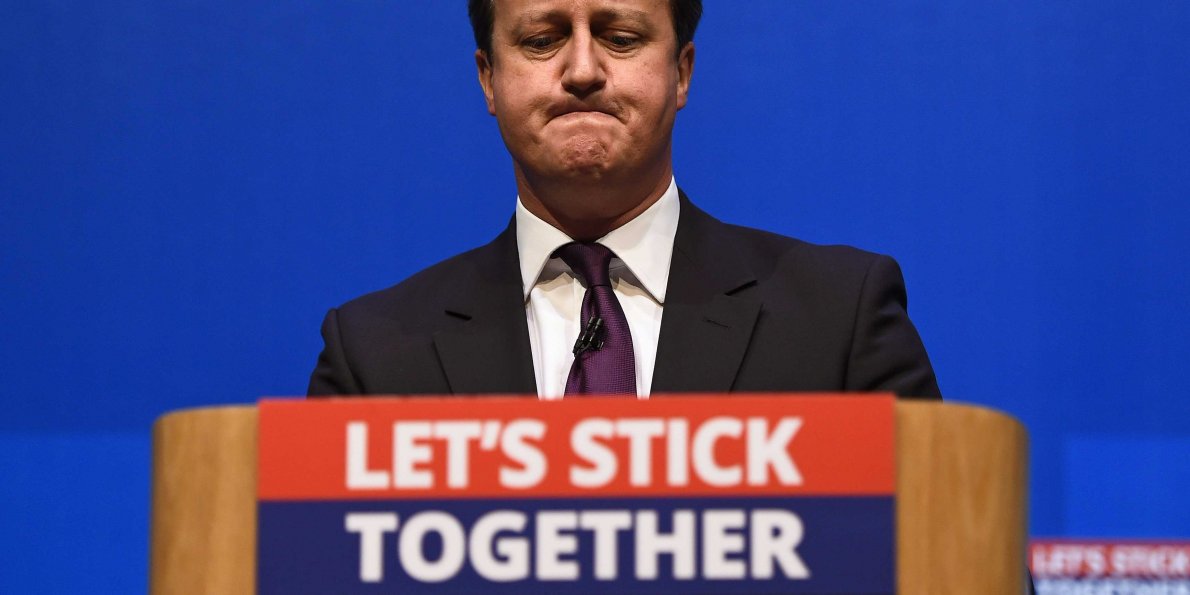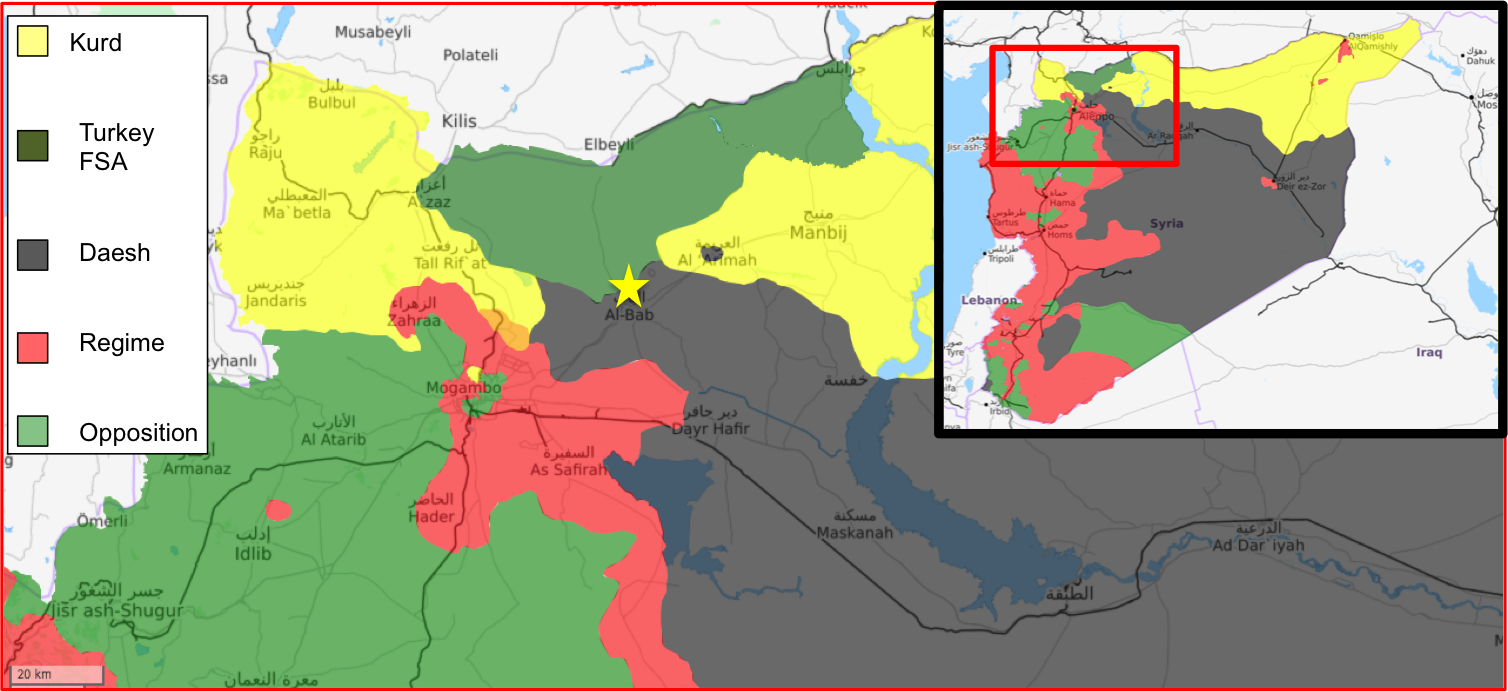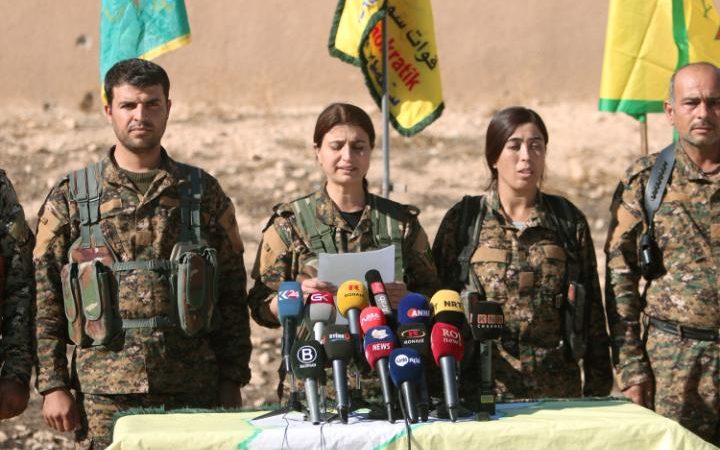Here at The Affiliate Network, wrapping up 2016 means looking back on the year to examine the issues that mattered most to the world, keeping in mind our goal to inform our readers, foster debate about the substance of global issues, and promote the expertise of our Affiliates.
With such a tumultuous year, our Affiliates had plenty to discuss about the year’s events. We published 13 pieces by contributors from around the world, each Affiliate lending their own unique perspective on issues in international policy, security, and diplomacy.
Human Security vs. National Security
The conflicts of 2016 continue to highlight the human cost of war and underscore the increasingly uncomfortable reality that some governments prioritize national security over the safety and wellbeing of their constituents. The fight against Daesh is a good example, leaving a trail of civilian victims in its wake and begging the question how the rest of the world can help the helpless in this terrible conflict. The atrocities in Syria and Iraq – as well as the resultant flight of tens of thousands of refugees to Western Europe – will be increasingly difficult to ignore.
Unfortunately, discussions of immigration in Europe often segue into concerns over terrorism. The year was marked by a rise in terror attacks across the globe, particularly in Europe. The Brussels Airport bombing in particular represented a decision point for the western world in the fight against terror. Stemming from this event and growing questions of interregional border security, Europe grapples with the realities of an increasingly complex security situation. Rein Westra underscores the importance of adapting to this circumstance in Securing Trade and Transportation.
As Navisio Global’s CEO, Lino Miani, highlights in a series of articles on the fight against Daesh, humanitarian concerns and terrorism in Europe are only one aspect of the challenges in the Middle East. In Making Mosul Great Again and The Gate, Lino describes the unfathomable strategic importance of two individual cities in Syria and Iraq as Russia, Turkey, the United States, Iran, and NATO wage what some believe is a proxy struggle for influence in the Middle East.
Nationalism & Populism in 2016
The presidential election in the United States captured attention the world over, but it was not the only political transition in the news. In Let’s Change, Jon Nielsen wrote about the end of the Kirchners and Peronism in Argentina. Though Argentina may be ending its tradition of power transfer from husband to widow, Mugabe’s Heart explores how long-time president of Zimbabwe, Robert Mugabe, may be following the same playbook as the Kirchners.

Elections were not the only political events captivating audiences in 2016. In the United Kingdom, the referendum to leave the European Union, also known as “Brexit”, dominated headlines and may have inspired similar movements throughout Europe. Prime Minister Matteo Renzi resigned after Italians rejected a constitutional change to the legislative balance of power, resulting in increased instability within the broader Eurozone. Elsewhere, President Recep Tayyip Erdoğan of Turkey narrowly avoided falling victim to his country’s latest military coup and has since consolidated power through purges and repression. President Dilma Rousseff of Brazil was impeached on corruption charges and President Nicholas Maduro of Venezuela is leading the resource-rich Bolivarian state into poverty and despair as he clings to power.
A Fractured Future?
The coming year will put to work the lofty campaign promises of those who won elections in the past year and focus our attention on additional ones the world over. France, Germany, Chile, South Korea and India will all hold presidential elections in 2017. Many of our readers are alarmed that trends of nationalism and populism will shape the character of the EU and the western world for the next several years but some of our Affiliates offer voices of calm in the storm. Portuguese diplomat and former United Nations Secretary General’s Special Representative, Victor Angelo, offers a contrarian perspective into the implications of the historic Brexit referendum in The Sky is not Falling on the European Union. Victor Perez-Sañudo makes a similar case from a law enforcement perspective in With or Without the EU. Nick Avila then follows up with an intelligent debrief into what Brexit truly means for the European Union and the European identity in The Spark to Redefine “Europe”.
Brexit aside, multilateral institutions continue to play an important role in international relations and security. Jon Nielsen identified important implications to the UN Convention on the Law of the Sea in A New Weapon in the South Atlantic. On the Pacific side of the world, overlapping claims to the South China Sea caused intermittent escalation of tensions. Lino Miani examines the complex dynamic between ASEAN and China using lessons from the conflict in Ukraine in Beyond Crimea.
The concept of international cooperation is reliant on a level of shared values and understanding within the international system but fear and distrust seem to be on the rise and misunderstandings abound. The east-west cultural divide rests at the foundation of many security issues that predominate. In Tangled Conflict, Caleb Ling points out there are still many misconceptions about unrest and conflict in the Kingdom and Mike Kendall highlights the often dangerous rhetoric used to describe China’s rise to power in Social Media’s Chinese Boogeyman.
The Affiliate Network would like to wish everyone a happy and healthy holiday, and we look forward to providing you the same quality of analysis in 2017 that we did in 2016. To our readers: a sincere “thank you” for all of your likes, shares and comments. The Affiliate Network team hope that like us, your holiday will be rich with constructive policy discussion at the family dinner table.

Patrick Parrish is the Blogmaster of The Affiliate Network. He is a U.S. Air Force Officer currently serving in Santiago, Chile.






